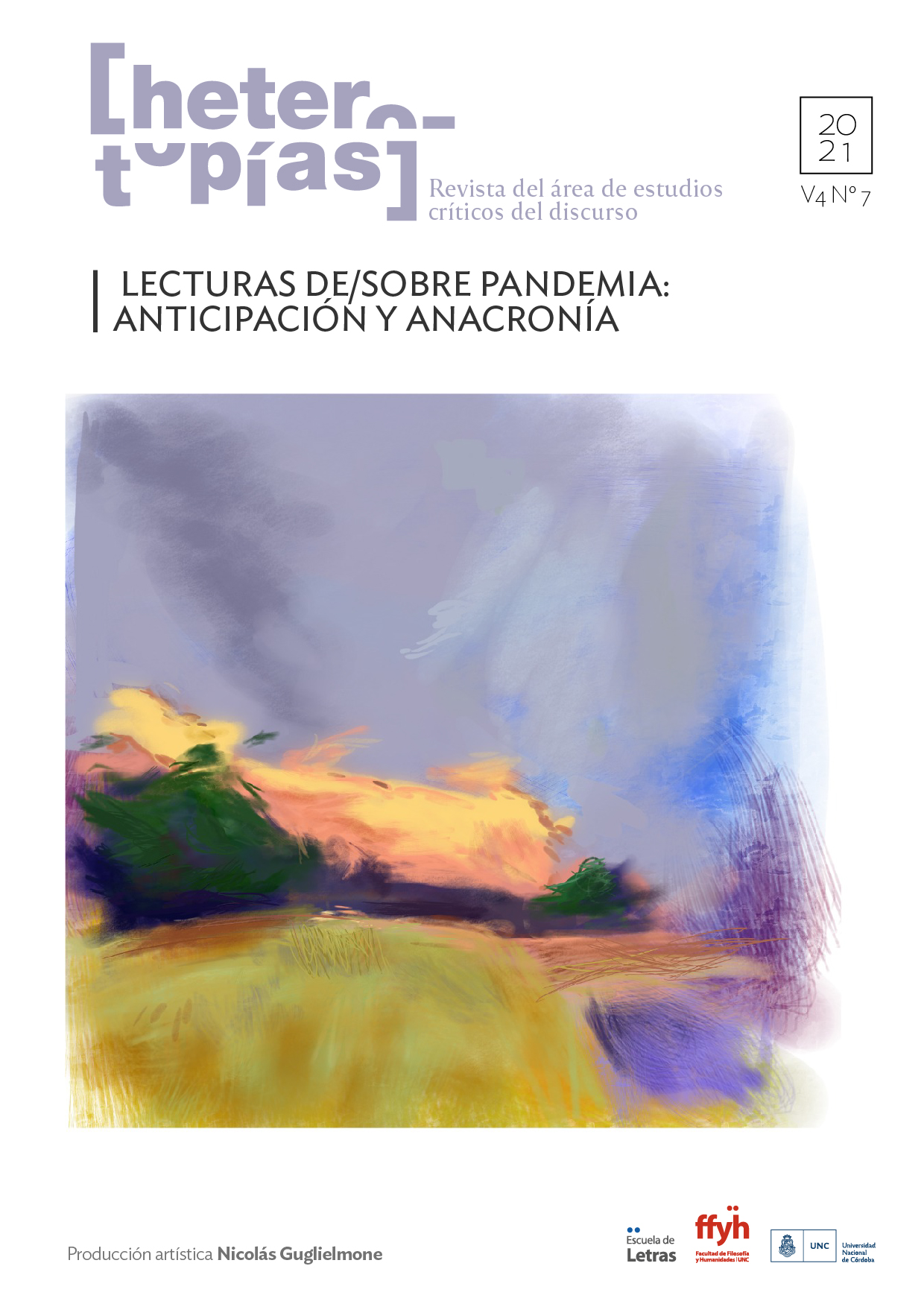The divergence of the “middle ground” in the characters of Silviano Santiago’s Stella Manhattan
Main Article Content
Abstract
The article introduces a crossing between the cultural-thesis scopes of “middle ground” [entre-lugar] in Latin American discourse, initially designed by Silviano Santiago in 1971, and his novel Stella Manhattan, written in 1985.
The development of middle ground as a category stems from a desire to account for the modulations of interbreeding and the anthropophagic tensions between Latin America and European metropolises. On the other hand, a reading of this area of tension and conflict between both continents modifies the statute of literary traditions bringing into focus the relationship between a work of art and externality beyond local contexts. Regarding methodology, an immanent criticism of texts is proposed, and an against-the-grain reading based on Walter Benjamin’s premise that in the interpretation of details it is possible to interpret the whole.
The 1964 coup implied the development of a modernizing project that would consolidate Brazil’s entry into monopolistic capitalism. The ensuing and progressive economic growth, which excluded a large portion of Brazil’s population, has come to be known as “the Brazilian miracle”, and coincides with the anos de chumbo, the most repressive period of the dictatorship. Violence, extreme fear and enforced disappearance radicalizes the need for new narrative finds in the Brazilian literary system in order to retell the horror and understand the construction of memories beyond militants’ heroic representations. Traumatic experiences are inscribed in Santiago’s novel from a place of geographical displacement and the mobile identities of the bodies. The middle ground, an essay tool initially, provides a new framework to generate allegories in the narrative configurations about political violence, not from the heroic stance of militant epics, but from the subjectivity of bodies in transit. Sexuality and writing occur in a unique place of escaping identities.
Keywords: middle ground; divergence; memories.
Downloads
Article Details

This work is licensed under a Creative Commons Attribution-NonCommercial-ShareAlike 4.0 International License.
Those authors who have publications with this journal, accept the following terms: Those authors who have publications with this journal, accept the following terms:
a. The authors will keep their copyright and guarantee to the journal the right of first publication of their work, which will be simultaneously subject to the Creative Commons Attribution - Non-Commercial - Share Alike (by-nc-sa) Attribution License; no commercial use of the original work or any derivative works is allowed, the distribution of which must be done with a license equal to the one that regulates the original work.
b. Authors may adopt other non-exclusive license agreements for the distribution of the published version of the work (e.g., deposit it in an institutional telematic archive or publish it in a monographic volume) provided that the initial publication in this journal is indicated.
c. Authors are allowed and recommended to disseminate their work through the Internet (e.g. in institutional telematic archives or on their website) before and during the submission process, which may lead to interesting exchanges and increase the number of citations of the published work. (See The effect of open access).
How to Cite
References
Benjamin, W. (2000). El concepto de crítica de arte en el Romanticismo alemán. Barcelona: Península.
Benjamin, W. (2016). El Narrador. Santiago de Chile: Metales Pesados.
Cornejo Polar, A. (1982). Sobre literatura y crítica latinoamericana. Caracas: Facultad de Humanidades y Educación, Universidad Central de Venezuela.
Santiago, S. (2000). El entrelugar del discurso latinoamericano. En Amante, A. y Garramuño, F. (selección, traducción y prólogo). Absurdo Brasil. Polémicas en la cultura brasileña (pp. 61-77) Buenos Aires: Biblos.
Santiago, S. (2004). Stella Manhattan. Buenos Aires: Corregidor.
Scott, J. (2012). Las mujeres y los derechos del hombre. Feminismo y sufragio en Francia, 1789-1944. Buenos Aires: Siglo XXI.
Segato, R. (2021). Santos y daimones. El politeísmo afrobrasileño y la tradición arquetipal. Buenos Aires: Prometeo.
